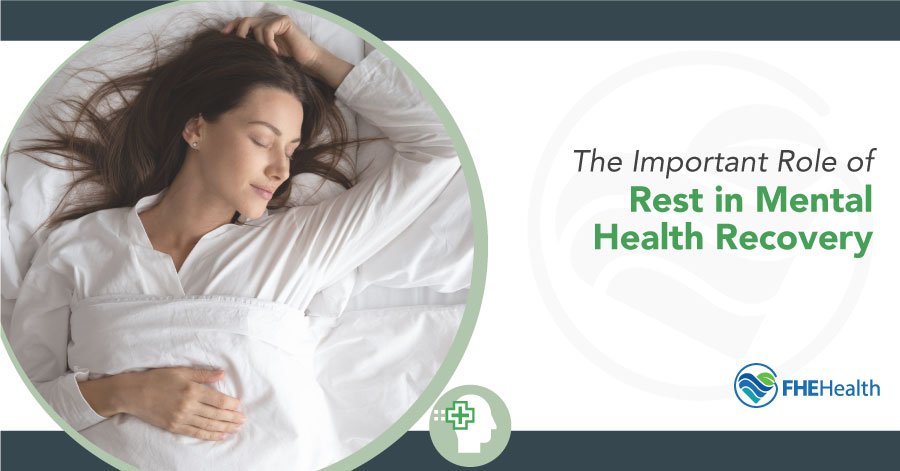
Rest and mental health are intimately connected. People who are trying to improve their mental health often think about things like making it to therapy sessions and trying to make progress. While those are very good intentions, you’re likely forgetting one of the biggest helpers for recovery and maintenance: rest.
Anyone who’s going through recovery needs to ensure they’re getting the rest they need. Without the proper rest, your mental health will start to suffer. This can cause you to relapse and may lead to you having significant issues.
Treatment can begin quickly and discreetly, get started now The average adult who is 18 to 60 years old requires at least 7 hours of sleep per night. The actual amount you need may vary, so you’ll have to determine what works best for your needs. As you age, your sleep needs and patterns will change, but it’s still important that you get quality sleep. Sleeping for short spurts isn’t going to provide you with the quality of sleep that’s beneficial. There are two types of sleep: REM and non-REM. Approximately 20% of your sleep is REM sleep, which is when the eyes move rapidly and you have intense dreams. The remainder of the sleep is non-REM sleep. This has four stages. 1. Light dozing, but not refreshing 2. Middle-intensity sleep that’s refreshing 3 and 4. Slow-wave sleeping that’s very refreshing Many factors can impact a person’s ability to sleep, including more than 70 types of sleep disorders. Some individuals suffer from insomnia. Certain mental health conditions, such as bipolar disorder, anxiety, depression, or schizophrenia, can also cause changes in sleep patterns. When a person feels up, they might also feel they don’t need as much sleep. When they begin to feel low, they may need to sleep more. Some lifestyle factors also affect a person’s ability to sleep. These include factors like: During REM sleep, you will dream. This has a positive impact on your mental and emotional health. When you don’t get the right amount of sleep, the level of stress hormone in your brain is affected. This can harm your mental health. The neurotransmitters in your brain are also impacted, which can negatively affect your emotional health. This creates a harsh cycle that’s hard to break unless you take control of your sleep patterns. The lack of sleep can make mental health conditions worse, and the worsening mental health conditions can make it harder to sleep. When your mental health is taking a hit because of a lack of sleep, you might become more irritable and emotional. This can compound the difficulties you’re having because you know you shouldn’t feel that way. Rest and mental health are intricately linked. Ready to start? More questions about treatment? One of the best things you can do to improve your sleep is to set up a sleep pattern. Try to go to bed and wake up at the same time. If you can’t stay asleep or fall asleep, get up and do something relaxing before trying to sleep again. Trying to avoid stimulating activity before bed may also help. While you still need to do physical activity, you should avoid doing exercise at least three hours before bedtime. Try to leave enough time between your final meal and bedtime so the food can digest properly. If possible, avoid foods that can cause indigestion, because the painful burning and pressure can make it hard to sleep. Because alcohol, nicotine, and caffeine can have a negative effect on sleep, you should avoid them for at least four hours before bed. It’s true that alcohol can make you sleepy, but it will cause a diminished quality of sleep. You also need to work on improving your mental health. This includes going to your therapy appointments, taking your medicine, and going through the activities that your mental health team assigned to you. It might also help you to have a support team that you can count on to help you through tough times. A routine of self-reflection can improve rest and mental health. Some people who are in recovery find that writing down their feelings in journals helps them sleep. This is often beneficial if the lack of sleep is caused by worries or anxiety. Having a journal can also help you when you talk to the therapist because you can bring it with you to appointments so you don’t forget anything you need to discuss. It’s also possible that sleep issues signal a need to increase the intensity of your therapy. This could mean you have to go to more appointments or meetings. For some, going into an inpatient setting is beneficial so that all aspects of their mental health and emotional well-being can be worked with at once. If you find your sleep is suffering and your mental health is going downhill, reach out to FHE Health for help. You aren’t alone in your struggles, so you don’t have to try to do everything by yourself. Our counselors are ready to talk to you and help you discover the options you have to start or continue on your path toward recovery. We’re available at (833) 596-3502 around the clock, 365 days per year. You just have to make the call. Kristina Robb-Dover is a content manager and writer with extensive editing and writing experience... read moreNeed Help?
How Much Sleep Does the Average Adult Need?
What Might Impact the Ability to Sleep?
How Does Lack of Sleep Impact Adults?
Not getting enough sleep can have a profound impact on your mental health. The average person moves through the sleep cycle every 90 minutes. When you’re in non-REM sleep, your body can relax. Your muscles relax, your body temperature goes down, your breathing slows, and your heart rate decreases. This is a time when your immune system can strengthen.
Begin your recovery today
How Can You Improve Your Sleep?
What Can You Do If Sleep Becomes an Issue?
![]()
About Kristina Robb-Dover






